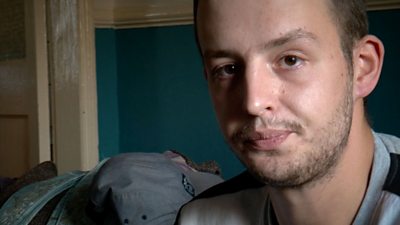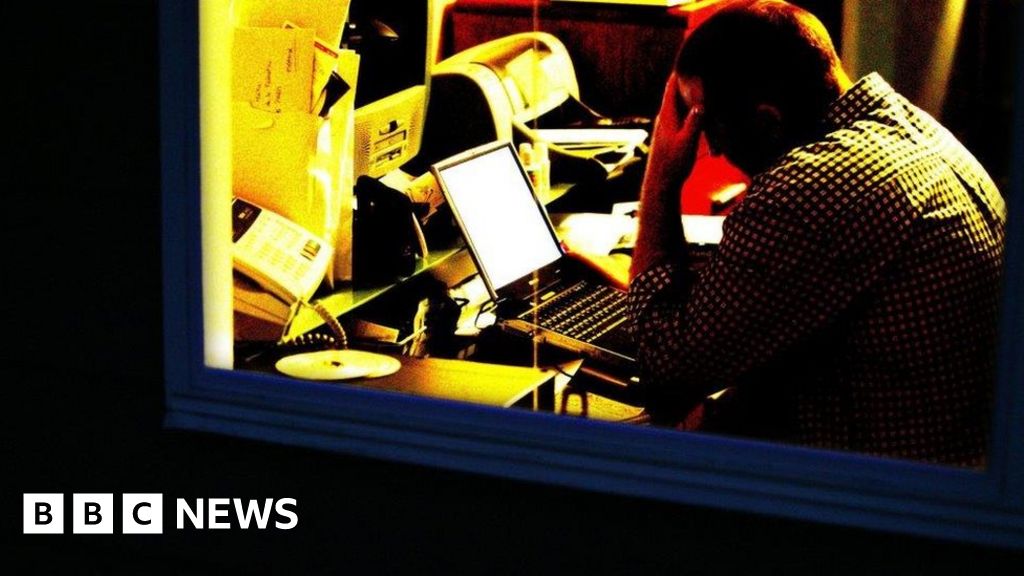Bbc News Gambling Story
BBC News is getting more ambitious with off-platform distribution, particularly for video. But for now, that strategy is fixed on Facebook, Instagram and Twitter, not Snapchat.
The broadcaster has long been prolific with tools like Facebook Live, but Instagram is now a bigger focus, with a following of 3.8 million and climbing for its BBC News account. Since Instagram upped the maximum length on a video from 15 seconds to one minute 15 months ago, more publishers have prioritized video over photos on the platform. The BBC is no exception, publishing 154 videos compared to 12 photo posts on its BBC News account in May, according to NewsWhip data.
- Get the latest breaking news from the BBC and our global network of journalists. The app also offers the BBC News Channel streamed live, social features and personalisation so you can re-order the news categories to suit your interests. Key features: Top Stories brings you the latest, breaking news from our trusted global network of journalists. My News is a feature allowing you to personalise.
- Oct 08, 2019 For some the path to gambling begins with playing online games, as the BBC's Becky Milligan heard from the father of one young man now getting help for his addiction. 'Not in a million years, not.
- Panorama: Addicted to gambling GamCare, which operates the national gambling helpline, has told Moneybox on BBC Radio 4 that the number of contacts in the three weeks after the lockdown began, on.
- Comedian John Robins has said he would have probably killed himself if he had access to online gambling at the height of his addiction. The radio presenter revealed how he started gambling at the.
On the evening of the U.K. general election on June 8, the BBC published a single live Instagram Story that was updated throughout the night as votes were being counted, via its BBC News account rather than a separate election account, which it has previously used when covering elections. One of its best-performing Stories gave an overview of what happened throughout the night: It began with a graphic of the exit poll, then featured “Question Time” presenter David Dimbleby talking about what it all meant and cut to BBC correspondents reporting from different areas of the country, leading up to the key results.

Typically, BBC News’ live Instagram Stories get an average of 100,000 views, with around half of those watching to the end, according to Mark Frankel, social media editor at BBC News. Views for non-live videos that get published in the Instagram feed can vary wildly, but tend to be in the hundreds of thousands. He said the team is still looking at what referral traffic each platform provided during the election coverage.
Driven by the audience growth and the Instagram Stories feature, BBC News is more focused on Instagram than Snapchat. While it has a Snapchat user account, it’s not a Discover partner and publishes less frequently to its account than other channels. BBC News published to Snapchat as part of its Brexit coverage, but it left out the platform entirely for the June general election. That’s not to say it will stop creating content for Snapchat, but for now, the focus is where it can reach a larger audience.
BBC Radio Jersey The organisation which regulates gambling in Jersey has called on the islands health authorities to do more to help people with gambling problems. In its annual report, the Jersey.
“We’re funded by license fee, so we have to harness and hone our resources in a way which will make the biggest impact. It’s not worth having a dedicated team of staff on a channel [Snapchat account] that has just 3,000 on for us,” said Frankel. He added that could change in time, but the current focus is Instagram, Facebook and Twitter.

The BBC’s public-service remit means it doesn’t need to grapple with the issues commercial publishers face when it comes to monetizing social platforms. That said, resources are always tight, so although a lot of original video content is created for Instagram Stories, the same material is repurposed or reshot for other platforms to stretch it beyond the 24 hours it has on the platform before disappearing.
“We are keen to make the most of the Instagram because we see the growth potential, but I’m also conscious from a resource perspective that if we cut stuff for Instagram, those same assets can be repurposed for Facebook and other sites,” Frankel said. “I don’t want the work that goes into creating an Instagram Story to only be for that platform. Otherwise, you’re creating lots of separate teams working on different platforms.”
The biggest challenge for BBC News is connecting with the younger audiences that view traditional news broadcasters as part of the “establishment” and not connected with what they’re interested in or believe in, said Frankel. “We’re still figuring out how to get the balance right.”

Forget those ideas about card sharps and hustlers, a new breed of white-collar gambler is using statistics and the power of the internet to turn a profit. Welcome to gambling as a career option.
Despite the stereotypes of smoke-filled betting shops and glitzy Mayfair casinos, gambling is not what it once was.
The abolition of betting tax for punters in 2001 and the growth of internet gambling have revolutionised the industry and opened the door to a new breed of gambler, who is choosing it as a career.
Matthew Benham, managing director of Smartodds, had placed just a handful of bets in his life before he became a professional gambler last year. He was a City trader for eight years before setting up his company, which bets exclusively on football.
Suspicion
The 36-year-old employs 13 full-time staff, mainly made up of mathematicians and statisticians. He also has 25 part-time employees around the world who collate data on their country's league. Once the analysis is done, he and just one other colleague decide what bets to place.
'After leaving my job I was looking for something new,' he says. 'I have always been into football and I noticed betting on games was really taking off. A lot of what I did in the City feeds into what I do now. I use the spreadsheets and financial models I did as a trader to assess odds.
Until recently winning didn't always convert into high returns because the taxman and bookmaker took a cut |
'Five years ago professional gambling was hard work, but times have changed. With the internet it is much easier, from getting all the data to analyse a bet to placing it.
'I know more and more people who are taking it up full time and it is becoming a legitimate career choice. Some people are still suspicious of what I do and expect me to carry round suitcases full of cash.'
Benham says it is his unemotional attitude towards gambling that makes him successful - he makes a profit, although declines to say how much.
'I never bet for fun, it is purely a job,' he says. 'You have to be unemotional because if you do it for the thrill you might not make sensible decisions.'
There are no figures for how many people gamble professionally, but the money staked in all gambling style activities rose to £63.8bn in 2002-03, according to the government.
Dangerous passion
Politics graduate Paul Motty, 32, worked in the betting industry after school but left in 1997 to go to university because there were few prospects and full-time punting was too difficult. But after the explosion of internet betting sites he became a full-time gambler last year.
'The internet has changed the whole industry,' he says. 'The key to being a good gambler is research. It used to take days hunched over the papers to research a bet, now it takes minutes.
'Gambling is losing its seedy image. It is a massive global industry and doing it professionally is now a viable career. Effectively, it is just stock broking.'
Taking a punt £50 - What six out of 10 Britons spend a month on gambling £20 - Average spend per customer at bingo on one night £2.49 - What average household spends on Saturday's Lotto draw |
He knows more and more people who are taking it up professionally and they are mainly young.

'Younger people are computer literate and use internet sites. For us gambling doesn't have the same stigma, it is a job and we set ourselves strict limits,' he says.
Experts agree changes in the industry have made it more feasible to turn a punt into profit - but say it is not an easy way to make money.
'There has always been scope for smart people, with sufficient time to invest, to make it a full-time job of gambling,' said Dr David Forrest, reader in economics at the Centre for Gambling at the University of Salford.
'But until recently winning didn't always convert into high returns because the taxman and bookmaker took a cut. Now it is more feasible that your time will deliver a positive financial outcome.'
The university runs a degree in business and gambling studies and for the first time last year a student left to become a professional gambler after graduating.
Compulsive Gambling Story
Dedication

'You have to be very dedicated - it is not an easy job,' says Dr Forrest. 'That's the mistake some people make.'
Gordon House knows just how many people can't cope. The UK's only charity offering residential treatment programmes for gambling addicts, it has seen a huge increase in inquiries in recent years and places are massively oversubscribed.
Bbc News Gambling Story Ever
Managing director Faith Freestone says there is a potential risk for anyone who gambles.'Professional gamblers talk about being in control but the problems start when gambling controls you,' she says.
Bbc News Gambling Story Ever
Despite his success Motty says he would not advise anyone to take it up.
'You have to take the emotion and passion out of it to be a good gambler and a lot of people just aren't able to do that.'